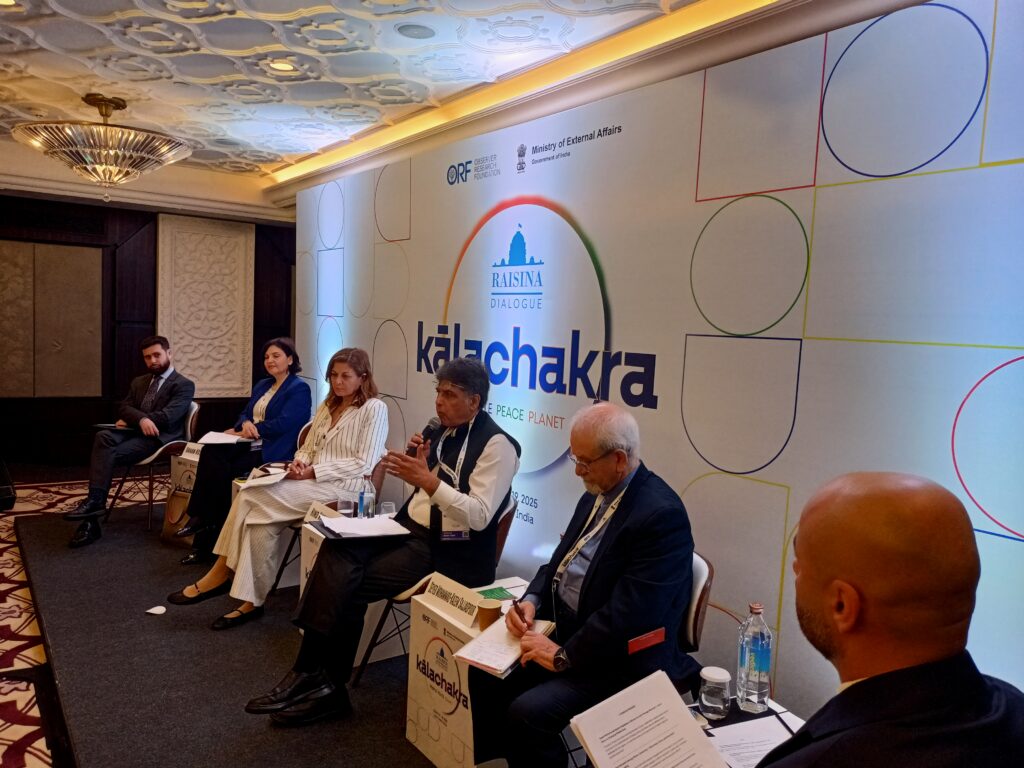
On Day 2 of the ORF MEA Raisina Dialogue, a session titled “The Iran Factor: Crisis, Convergence, and Competition” featured an eminent panel, including Vahan Kostanyan, Deputy Minister of Foreign Affairs of Armenia; Shahid Mohammed Kazim Sajjadpor, Distinguished Senior Fellow and Advisor to the Ministry of Foreign Affairs, Iran; Manish Tiwari, Member of Parliament (Lok Sabha), India; Hind Kabawat, Director and Diplomacy & Conflict Resolution Expert; and Maha Yahya, Director of Carnegie Middle East Center, Lebanon. The session was moderated by Mohammed Ali Harisi, Foreign Editor at The National, UAE.
The main discussion revolved around the importance of rapprochement between Iran and influential Arab states in achieving a successful ceasefire in Gaza. Another key agenda was the future of China-led mediation in the Middle East, exploring whether Beijing can outmanoeuvre Washington, D.C., and how great power competition and influence will shape the region.
Each panellist shared their perspectives. Notably, Shahid Mohammed Kazim Sajjadpor argued that the term proxy has been unfairly associated with Iran, stating that Iran does not operate through proxies. He also criticized Israel’s actions in the region, referring to them as a social engineering project aimed at expanding its borders, which he described as inhumane.
Manish Tiwari highlighted India’s strong ties with both Israel and Iran, emphasizing that Indo-Iranian relations are deeply rooted in civilizational links. He suggested that India, given its connections with both nations, could play a significant role if mediation were required.
Hind Kabawat shared her recent experience visiting Syria, where she observed the dire situation on the ground. She also criticized the West for its hypocrisy regarding the deaths of Christians in Syria’s coastal provinces.
Vahan Kostanyan expressed Armenia’s willingness to assist in stabilizing the Iranian situation. He pointed out that Armenia shares a trade route with Iran, making a stable Iran crucial not only from a political perspective but also for economic stability.
The panel also discussed China’s growing role in the Middle East. They noted that China brokered a détente between Saudi Arabia and Iran in 2023, increasing the likelihood of Chinese-led mediation. However, the panel agreed that China’s involvement is also driven by geopolitical interests, as it aims to expand its presence in the region to counterbalance the historical influence of the United States.
Aayush Pal is a freelance writer on contemporary geopolitical developments. The views expressed in his work are entirely his own.
